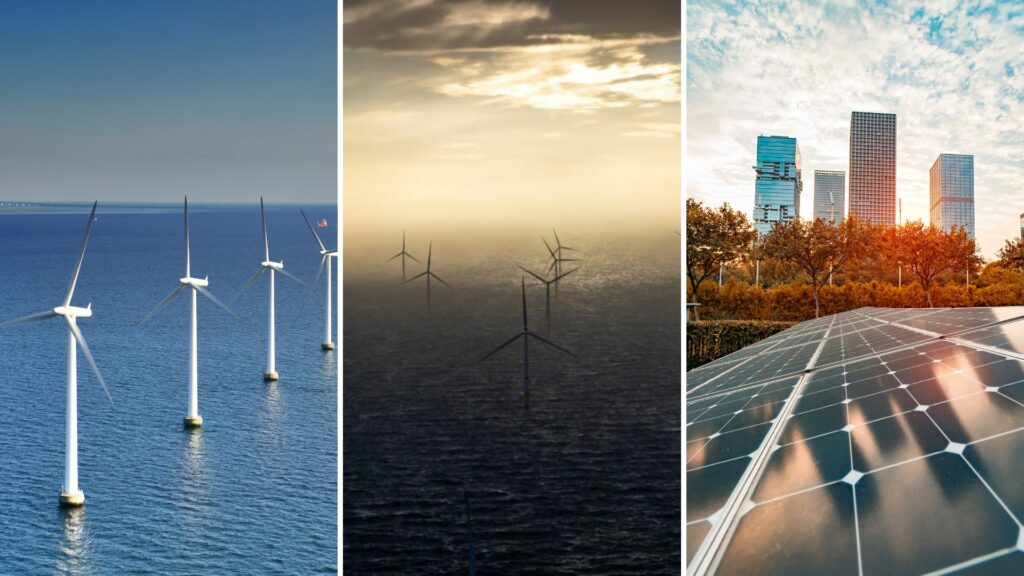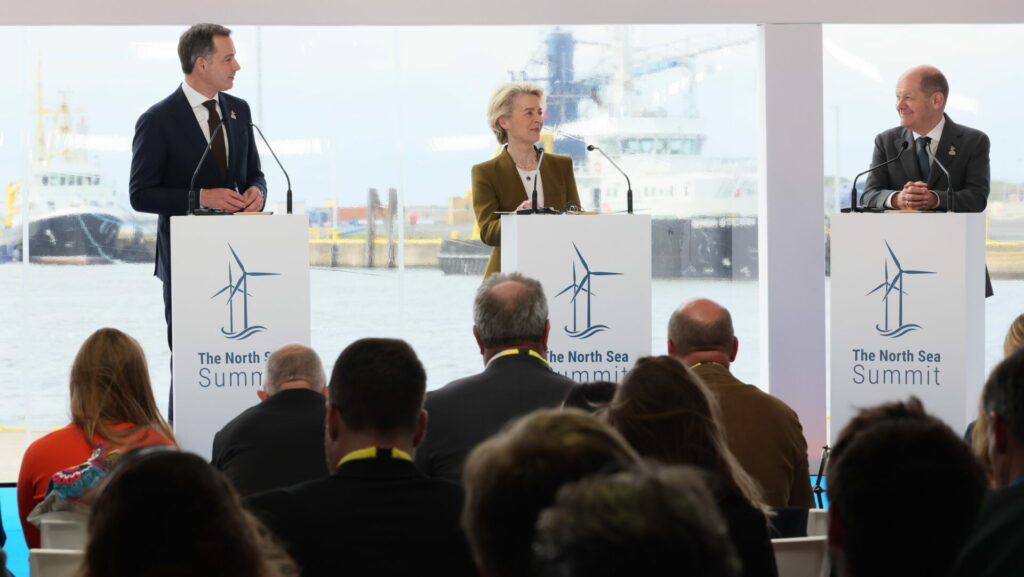With Europe pinched by exorbitant energy bills on the one hand and climate ambitions that demand a complete rethink of how we power everything on the other, leaders see renewable energy as the solution to both problems and yesterday marked a major step in developing this resource collectively.
The North Sea Summit saw nine nations unveil plans for a green energy coalition that would transform this marine area into an offshore powerhouse capable of producing, eventually, three times the electricity of France's nuclear park. It didn't go unnoticed that this area that was previously Europe's richest reserve of oil and gas (though with many fields now overexploited) might now become the "world's biggest powerplant".
Moreover, the commitment to combine efforts towards energy sovereignty rather than the EU leaving individual Member States to work towards imposed energy targets is yet another group within a group – and notably one that includes EU outsiders in the shape of the UK and, to a lesser extent, Norway.
But much as we can all hope that progress is swiftly made to realise this masterplan, the project won't save Europe from its present predicament – not least with the sustained attacks on nuclear energy, which provides a concentrated and clean energy yet is lampooned by scaremongering "environmentalists".
Whilst heads of state are ever eager to announce decisive action plans that move towards universally accepted goals (cleaning up our energy provision), they are less enthusiastic about the other side of the same argument: in order to move meaningfully towards reducing greenhouse gas emissions (without outsourcing polluting activity to developing nations) we will have to curb consumption.
It's an admission out of sync with the aim to stabilise economies: how can we achieve a 2% growth in GDP whilst also slashing emissions? Marrying climate ambitions with economic targets is a challenge that straight-talking climatologists accept is more fantasy than technicality.
Sobriety is the word of the moment: as well as cutting dependence on fossil fuels we need to simply use less energy of any kind. Whatever the context, calls for sobriety are never appealing. Then again, it's a course of action better made out of choice than obligation. And as in other scenarios, acting collectively softens the blow. Is it time for a European sobriety summit?
Let @Orlando_tbt know.
Belgium in Brief is a free daily roundup of the top stories to get you through your coffee break conversations. To receive it straight to your inbox every day, sign up below:
1. New waste collection calendar announced in Brussels to enforce use of orange bags
A new calendar for waste collection in the Brussels-Capital Region aims to help residents adjust their habits for sorting their household waste and taking out their rubbish bags, with a focus on creating a cleaner city. Read more.
2. A sobering truth: Building renewables just one half of averting climate crisis, expert warns
A French energy expert has claimed that Europe's increasing production of renewable energy is "necessary, but not sufficient" for the continent to avert catastrophic climate change, and suggested that an overall reduction in energy consumption is also vital. Read more.
3. One of Belgium's Most Wanted arrested in Saint-Gilles
A fugitive on Belgium's Most Wanted list was arrested in the Belgian capital by the Fugitive Active Search Team (FAST) and the Brussels-Midi police zone on Monday. Read more.
4. One week left to apply for Belgium's energy premiums: How to get them
To keep the population's energy bills a bit under control following the sky-high prices last year, Belgium's various governments worked out several premiums. For the federal energy grants, there is only one week left to apply until the deadline. Read more.
5. Fuse nightclub may permanently move to 'Palaces' under Midi Station
Following a successful weekend-long rave in the so-called Palaces (or quadrilatères) underneath the Brussels Midi/Zuid Station to celebrate the birthday of Brussels' famous Fuse techno club, the nightclub is reportedly considering moving there permanently. Read more.
6. Best cities for eco-friendly tourism: Brussels ranks 16th in the world
A new study of 167 cities in the world ranked Rotterdam (the Netherlands), Amsterdam (the Netherlands) and Graz (Austria) as the most eco-friendly urban destinations. Brussels ranks 16th in the world, with a score of 71 out of 100. Antwerp, in the 36th position, is the only other Belgian city to make the list. Read more.
7. Iconic Brussels café Monk forced to close its doors
Brussels café Monk near Place Sainte-Catherine is known among locals as the place to go in the city to experience the quintessential Belgian atmosphere (and eat delicious spaghetti). But soon it will be closing its doors. Read more.


